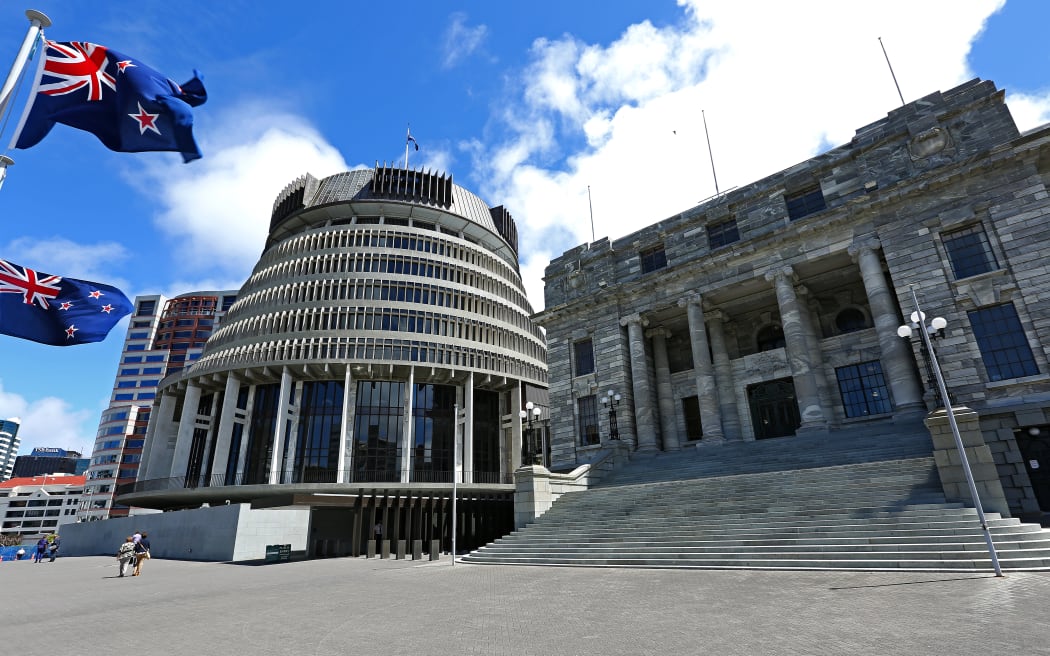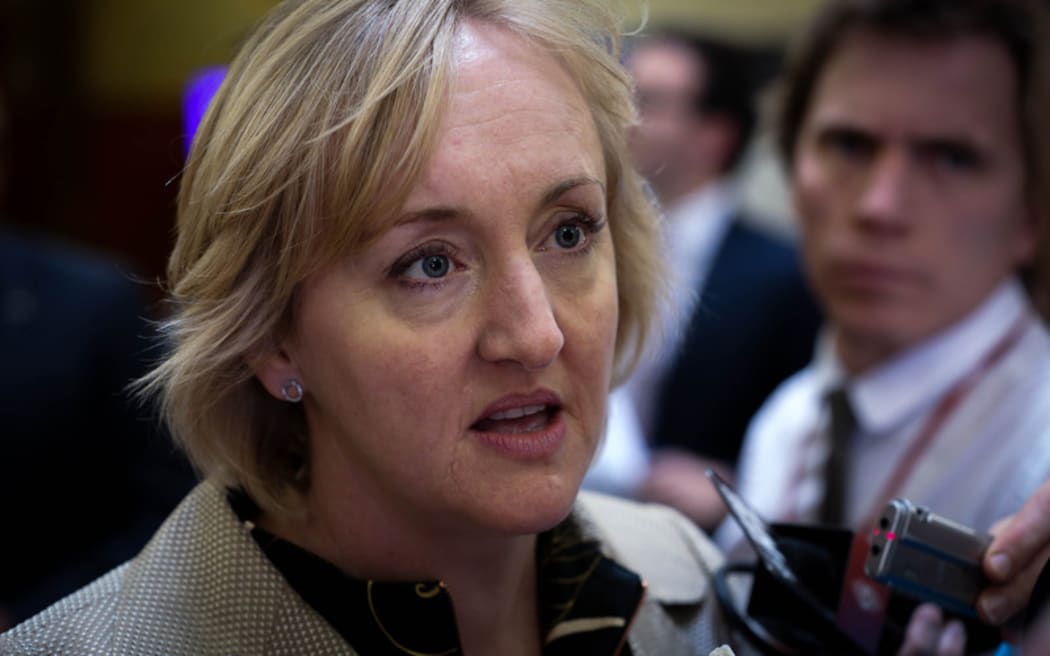The government says it is not condoning bribery and corruption in other jurisdictions by allowing some payments to foreign officials.
"The challenge I put to the National Party is to explain to this House why a bribe is not a bribe simply because it's a small bribe."
That was the argument put forward by Labour MP Phil Goff during a debate on the Organised Crime and Anti-Corruption Bill, which is currently going through Parliament.
Labour and the Greens say the legislation as it stands would allow New Zealanders to bribe officials overseas, while making the same action illegal in this country.
But the government insists it is a specific exemption, for legitimate payments for the likes of being fast-tracked through customs, to avoid making criminals of innocent New Zealanders abroad.

The Organised Crime and Anti-Corruption Bill was debated last night in Parliament. Photo: RNZ / Alexander Robertson
The bill gives law enforcement agencies greater powers to tackle illicit activities such as money laundering, fraud and drug-related crime.
It also allows police to share information with their international counterparts, and introduces new offences to address identity crime.
Green MP Dave Clendon tried to force changes to the provision relating to foreign bribes during the bill's committee stage debate last night.
He said New Zealand rated itself as being a country with very low levels of corruption.
"Unfortunately we have a blot in our legislation, which is a statement in the Crimes Act that enables and in fact legitimates New Zealand businesses abroad bribing public officials.
"We wouldn't tolerate that action in New Zealand if foreign nationals come here to do business, and start bribing our customs officials, our immigration officials, we'd come down on that very heavily."
Justice Minister Amy Adams said Mr Clendon's attempted change to the law was unnecessary as there was no exemption for bribing overseas officials.
She said that remained a serious offence and Mr Clendon's amendment referred to "small facilitation payments".
"And the issue there is, if you are operating overseas and you are offered a situation to perhaps pay $50 or $100 and go through a fast lane or get something processed as a priority application and the payment is small, it is in the usual course of activity.
"So you might be paying an immigration officer for faster clearance for immigration, and there is no material benefit to you, then we're saying it would [be] unfair to expect New Zealanders to have to do a forensic investigation behind the scenes to understand whether that payment is being kept by the official or properly transacted.
"That is actually an important safeguard against innocent New Zealanders getting wrongly criminalised."

Justice Minister Amy Adams said bribing overseas officials remained a serious offence and the law was designed to safeguard innocent activity. Photo: RNZ / Alexander Robertson
But Ms Adams said the exemption would not extend to, for example, payments to facilitate business transactions for a New Zealand company operating in China.
"There are very clear restrictions in the bill," she said.
"That they cannot receive a material benefit to themselves, nor can they impose material detriment on anyone else, so anything that means that they get a benefit they wouldn't otherwise have got, or someone else misses out, that doesn't qualify.
"So if you're talking about going through customs or immigration you're going to go through anyway.
"If you're talking about getting a contract, that's a benefit that you would have got that you wouldn't have got but for that payment, so that's still illegal."
Mr Clendon said the minister was wrong.
"Any payment that is legitimate to a government is invoiced, you get an official document in exchange for it, it's perfectly legitimate.
"We're talking about bribes essentially, call them facilitation payments if you will, but actually they're bribes.
"These are intended to make your business move more quickly but it supports the culture of corruption and is absolutely at odds with domestic legislation, so why should we support New Zealand business people acting illegally overseas?"
Mr Clendon's attempt to amend the legislation was defeated 61 votes to 60.




